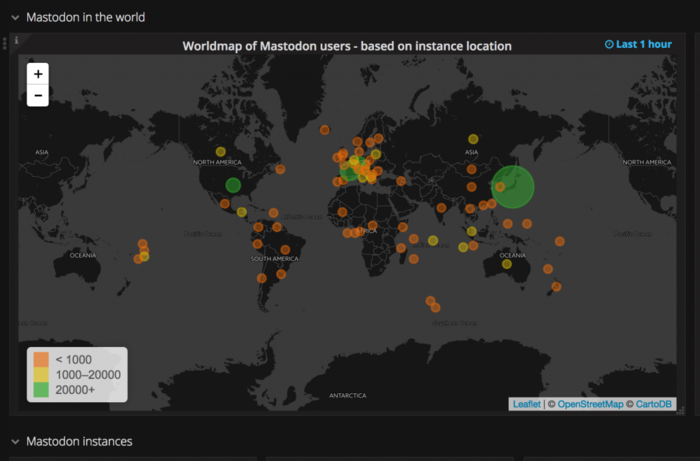this answer to @{Dennis Schubert; denschub@pod.geraspora.de} post seems reasonable.
it is indeed seems possible to map some subset of activitypub to the current diaspora functionality.
moreover that ruby libraries for ap already exists, there needs to be work done on integration, which is not easy, of course, but i think necessary - because otherwise diaspora stays isolated from the rest of federated world.
i think we have to try to create a social demand for this. if there is a demand, these functionality is more likely to be implemented - whether by diaspora team or by the fork.
well, the main problem is, that we have lack of developers, which is because diaspora is not that popular, and it is already a miracle that we have diaspora, and we have the existing team.
#activitypub #diaspora #activity_pub #ap #decentralization #federation #internet
if i subscribe to someone on mastodon from other instance, and the unsubrcribe, and i am the only follower to them on my instance, does that mean that my instance will forget following that account? or it’ll bring their posts to the global timeline anyway?
#mastodon #federation

Map those instances, and one thing becomes clear pretty fast: Mastodon is mostly a Japanese phenomenon. The two largest Mastodon instances – pawoo.net and mstdn.jp – have over 100,000 users each, significantly more than mastodon.social, the “mothership” site that Rochko himself administers. Three of the top five Mastodon instances are based in Japan, and the Mastodon monitoring project estimates that 61% of the network’s users are Japanese.
In one sense, this isn’t a surprise. Twitter is massive in Japan, where it has more users than Facebook, and is projected to be used by half of all social network users and a quarter of all internet users this year. But that’s not the whole explanation.
#mastodon #federation #decentralization
Indeed, cannibalizing a federated application-layer protocol into a centralized service is almost a sure recipe for a successful consumer product today. It’s what Slack did with IRC, what Facebook did with email, and what WhatsApp has done with XMPP. In each case, the federated service is stuck in time, while the centralized service is able to iterate into the modern world and beyond.
https://whispersystems.org/blog/the-ecosystem-is-moving/
#federation #xmpp #irc #slack #whatsapp #http #internet
If there is a resource connected to your gmail.com account called something similar to “MessagingXXXXXXX”, that’s the ‘new’ Google Hangouts (the one that doesn’t play nicely with XMPP). And quite possibly it’s the Android application for Google Hangouts.
So yes, Google Hangouts stays connected even if the device you’ve logged into from is not. Apparently this is a connection that’s created internally, inside Google, from their Hangouts service to their Talk service — from the new IM tech to the XMPP tech. And if you try to trick the XMPP service to sign out Hangouts (for example, by creating a new connection with identical XMPP resource), the Hangouts will happily log back into XMPP in your name and present you as ‘away’. And messages intended to be stored offline will end up in Hangouts, never to be seen again unless you use Hangouts on other systems.
#xmpp #jabber #federation #hangouts #google #internet #messaging